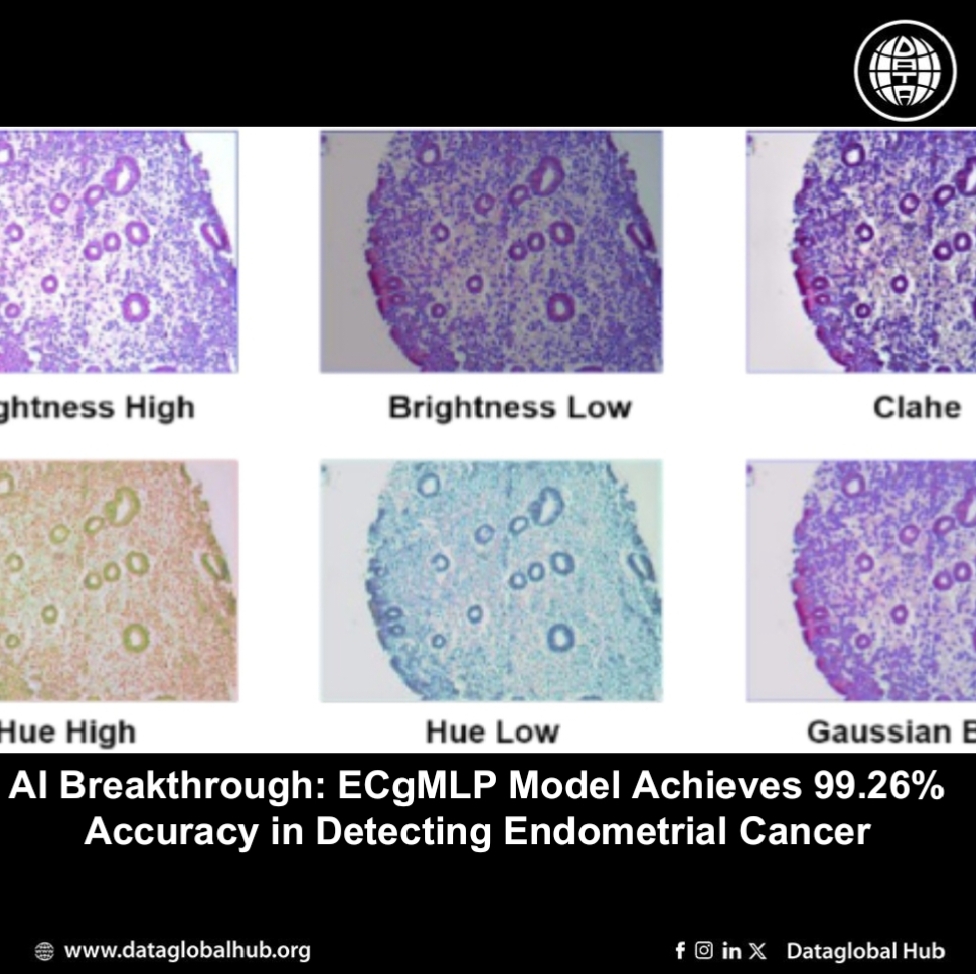
AI Breakthrough: ECgMLP Model Achieves 99.26% Accuracy in Detecting Endometrial Cancer.
Translate this article
Researchers from Daffodil International University in Bangladesh, Charles Darwin University, the University of Calgary and Australian Catholic University has developed ECgMPL, a specialized Artificial Intelligence (AI) model which has demonstrated remarkable accuracy in detecting one of Australia's most prevalent gynecological cancers. This model promises to enhance early detection and diagnostic precision, potentially saving countless lives.
This model has achieved an impressive 99.26 percent accuracy in identifying endometrial cancer, a notable improvement over current automated diagnostic methods, which typically range between 78.91 and 80.93 percent accuracy.
Endometrial cancer is the most common gynecological cancer in Australia and ranks among the most frequently diagnosed cancers in Australian women, according to the Cancer Council. The ECgMLP model analyzes histopathological images (microscopic images of tissue used in disease diagnosis) enhancing their quality, identifying critical areas, and analyzing the tissue for signs of cancer.
“The proposed ECgMLP model outperforms existing methods by achieving 99.26 per cent accuracy, surpassing transfer learning and custom models discussed in the research while being computationally efficient,” said Dr Asif Karim, Co-author and CDU Lecturer in Information Technology.
The model's benefits extend beyond endometrial cancer. Associate Professor Niusha Shafiabady, a co-author and adjunct Associate Professor at CDU and Australian Catholic University, explained, "The same methodology can be applied for the early detection and diagnosis of other diseases, leading to better patient outcomes. We evaluated the model on several histopathology image datasets, and it achieved high accuracy in diagnosing colorectal cancer (98.57 percent), breast cancer (98.20 percent), and oral cancer (97.34 percent)."
The core AI model developed through this research has the potential to serve as the foundation for software systems that assist doctors in making informed decisions during cancer diagnosis. This development underscores the growing role of AI in healthcare, offering hope for more accurate and timely diagnoses.
About the Author

Lena Cruz
Lena Cruz is an AI correspondent from Mexico
Recent Articles
Subscribe to Newsletter
Enter your email address to register to our newsletter subscription!